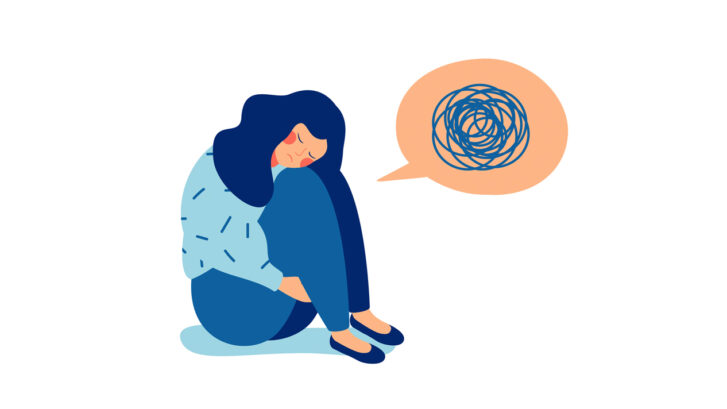Study Finds Reliable—and Drug-Free—Treatment for Anxiety
There’s no doubt that the last three or so years have raised anxiety levels among all of us. But anxiety disorders are more than just the normal reaction to stress. They are persistent feelings of fear or anxiety that regularly interfere with a person’s life.
According to the National Institutes of Mental Health (NIMH), nearly 40 million Americans—or about 18 percent of us—are currently living with a diagnosable anxiety disorder.
That’s why our primary care concierge doctors in Jupiter were so pleased to learn about a study released this month, which found that mindfulness is just as effective at treating anxiety disorders as commonly prescribed medication.
What are Anxiety Disorders?
According to NIMH, anxiety disorders fall into five primary types:
Generalized Anxiety Disorder (GAD) is characterized by chronic anxiety, and exaggerated worry and tension, even when there is little or nothing to provoke it.
Obsessive-Compulsive Disorder (OCD) is characterized by recurrent, unwanted thoughts (i.e., obsessions) and/or repetitive behaviors (compulsions) such as hand washing, counting, checking, or cleaning.
Panic Disorder is characterized by unexpected and repeated episodes of intense fear when there is no obvious reason for it, accompanied by physical symptoms that may include chest pain, heart palpitations, shortness of breath, dizziness, or abdominal distress.
Post-Traumatic Stress Disorder (PTSD) is an anxiety disorder that can develop after exposure to a terrifying event or ordeal in which grave physical harm occurred or was threatened.
Social Phobia (or Social Anxiety Disorder) is characterized by overwhelming anxiety and excessive self-consciousness in everyday social situations.
It is also possible to have more than one anxiety disorder at the same time.
Anxiety disorders are so common that this month the U.S. Preventive Services Task Force (USPSTF) recommended that doctors screen all adults under the age of 65 for such issues. The task force estimates that anxiety disorders affect as many as 40 percent of women and 25 percent of men at some point in their lives.
Drug-Free help
Those who suffer from anxiety disorders are often desperate for relief. The standard treatment involves the use of anti-anxiety drugs such as Lexapro and cognitive behavioral therapy.
Now, a study published this month in the journal JAMA Psychiatry found that eight weeks of intensive instruction in the practice of mindfulness meditation worked as well as Lexapro at reducing anxiety. That is, both groups showed about a 20 percent reduction in the severity of their anxiety.
Mindfulness is a type of meditation popularized more than 40 years ago by Jon Kabat-Zinn, in which practitioners learn to focus fully on what’s happening at the moment, as opposed to ruminating over the past or worrying about what might happen in the future.
The practice typically begins with breathing exercises, and full-body scans for relaxation, then learning how to let go of intrusive thoughts.
Instead of stressing over a particular thought, “you say, ‘I’m having this thought, let that go for now,’ ” lead study author Elizabeth Hoge, director of Georgetown University’s Anxiety Disorders Research Program, told Consumer Reports (CR).
“It changes the relationship people have with their own thoughts when not meditating,” she said.
The Time Issue
Critics have raised concerns with the length of time it takes not only to learn the new skill, but also the time commitment it requires.
“Telling people who are that overworked they should spend 45 minutes a day meditating is the ‘Let them eat cake’ of psychotherapy,” Joseph Arpaia, an Oregon-based psychiatrist specializing in mindfulness and meditation, wrote in an op-ed in JAMA accompanying the new study.
He says he’s found less lengthy approaches to using mindfulness to treat anxiety, including a technique he calls the “one-breath reset” to help patients become less anxious.
But Hoge told CNN that she hopes her study prods insurance companies to pay for mindfulness training.
“Usually, insurance companies are willing to pay for something when there’s research supporting its use,” she said.
“If they know it’s just as effective as the drug which they do pay for, why don’t they pay for this, too?”
Drug vs. Drug-free?
Another issue raised by Joy Harden Bradford, a psychologist in Atlanta who hosts the podcast Therapy for Black Girls, is the question of medication vs. meditation.
“The thing I would hate to have to happen is for people to pit medication against the mindfulness-based resources,” she told NPR, adding that someone with panic attacks might have a quicker reduction in symptoms with Lexapro than with waiting weeks before they fully absorb the mindfulness practices.
It’s worth noting, however, that Lexapro, like other anti-depressant drugs such as Paxil and Prozac, can take several weeks before serotonin levels in the brain begin to normalize. There’s also the issue of side effects, which are associated with any medication.
CR reports that 10 patients in the 200-participant study who were taking Lexapro dropped out due to the side effects they experienced, including insomnia, nausea, and fatigue. None of those in the mindfulness group dropped out because of side effects, although 13 patients reported increased anxiety.
Hoge told CNN that her study showed that meditation could be prescribed as an alternative for those who experience severe side effects from medication.
“Lexapro is a great drug,” she said. “I prescribe it a lot. But it’s not for everyone.”
Even Arpaia agreed in principle.
“It’s always interesting to see meditation work, and it works as well as medication,” he said.

